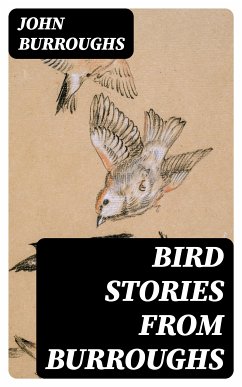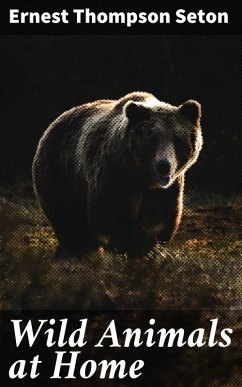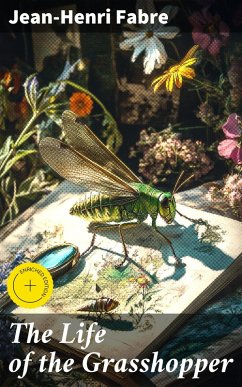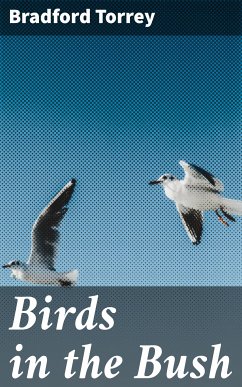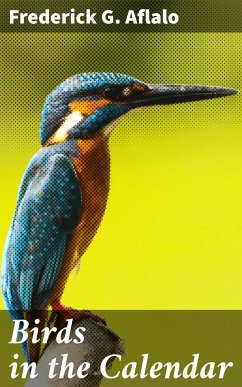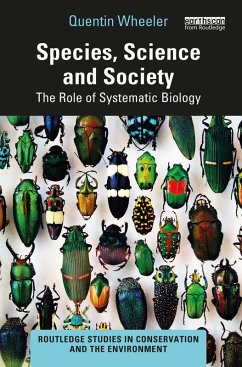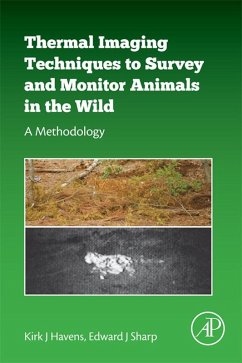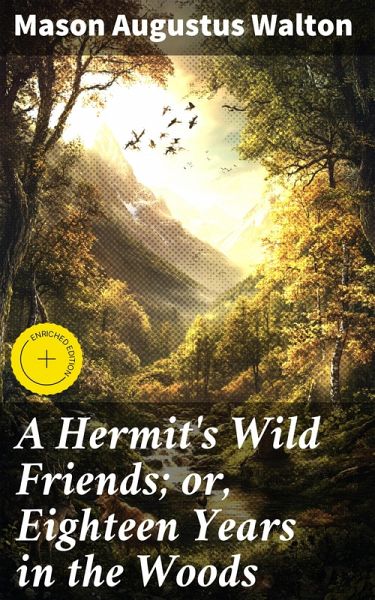
A Hermit's Wild Friends; or, Eighteen Years in the Woods (eBook, ePUB)
Enriched edition. Embracing Wildlife: A Hermit's Tale of Solitude and Connection in the Wilderness
Kommentar: Eastwood, Aiden / Redaktion: Good Press
Versandkostenfrei!
Sofort per Download lieferbar
1,99 €
inkl. MwSt.
Weitere Ausgaben:

PAYBACK Punkte
0 °P sammeln!
In "A Hermit's Wild Friends; or, Eighteen Years in the Woods," Mason Augustus Walton presents an illuminating narrative that melds memoir, natural history, and philosophical reflection. Set against the backdrop of the American wilderness, the book chronicles Walton's solitary life in the woods, offering rich vignettes of his encounters with wildlife and his contemplations on nature's profound beauty. Walton's prose is both lyrical and introspective, resonating with the transcendentalist emphasis on the spiritual communion between humans and the natural world, thus situating his work within the...
In "A Hermit's Wild Friends; or, Eighteen Years in the Woods," Mason Augustus Walton presents an illuminating narrative that melds memoir, natural history, and philosophical reflection. Set against the backdrop of the American wilderness, the book chronicles Walton's solitary life in the woods, offering rich vignettes of his encounters with wildlife and his contemplations on nature's profound beauty. Walton's prose is both lyrical and introspective, resonating with the transcendentalist emphasis on the spiritual communion between humans and the natural world, thus situating his work within the broader context of 19th-century American literature that seeks to reconcile civilization with the primal forces of nature. Mason Augustus Walton, an emblematic figure of his time, drew upon his formative experiences in the wilderness to craft this evocative narrative. His background as a naturalist and explorer, alongside his affinity for solitude and self-reflection, informs the philosophical underpinnings of his work. Walton's deep-rooted connection with nature is evident, as he grapples with themes of isolation, survival, and the philosophical inquiries into the human condition that sprout from prolonged engagement with the wild. This book is highly recommended for readers interested in the intersection of nature writing and philosophical exploration. Walton's vivid descriptions and insightful meditations not only celebrate the beauty of the wilderness but also invite readers to contemplate their own relationship with the natural world. A poignant blend of adventure and introspection, "A Hermit's Wild Friends" is an essential read for anyone captivated by the allure of nature and the introspective journeys it inspires. In this enriched edition, we have carefully created added value for your reading experience: - Hand-picked Memorable Quotes shine a spotlight on moments of literary brilliance. - Interactive footnotes clarify unusual references, historical allusions, and archaic phrases for an effortless, more informed read.
Dieser Download kann aus rechtlichen Gründen nur mit Rechnungsadresse in A, B, BG, CY, CZ, D, DK, EW, E, FIN, F, GR, H, IRL, I, LT, L, LR, M, NL, PL, P, R, S, SLO, SK ausgeliefert werden.





